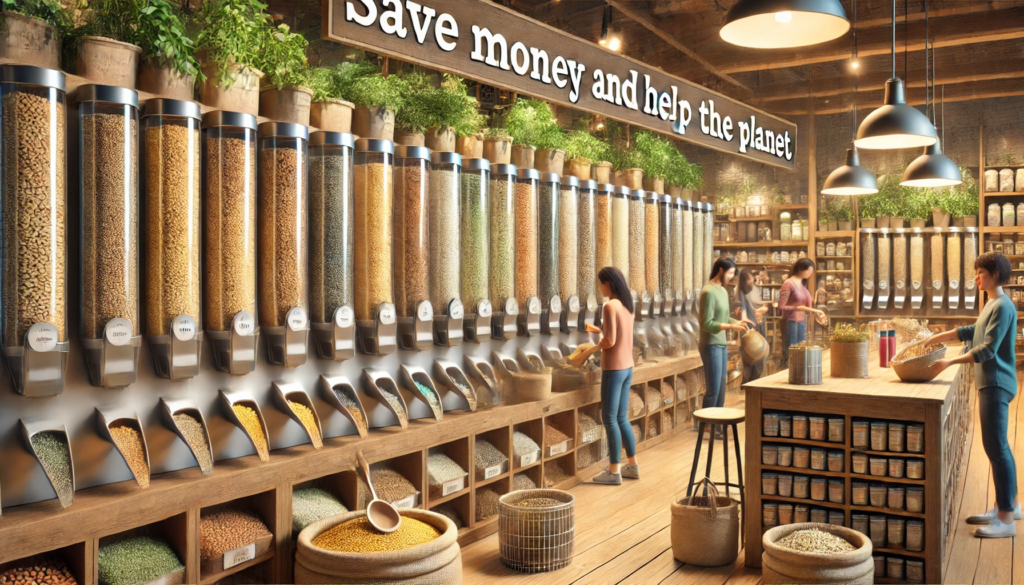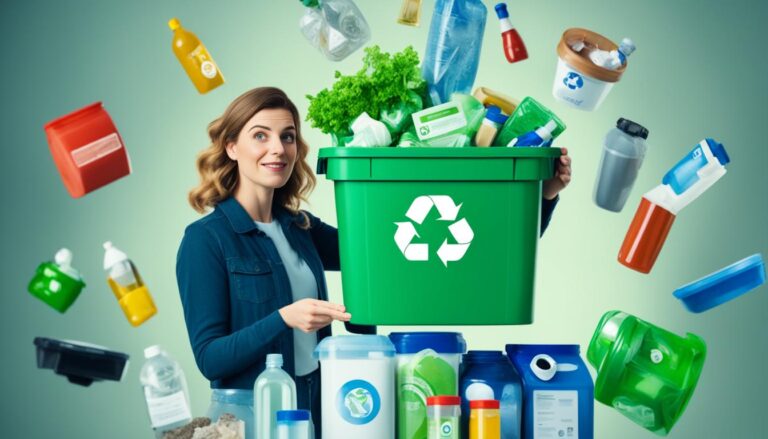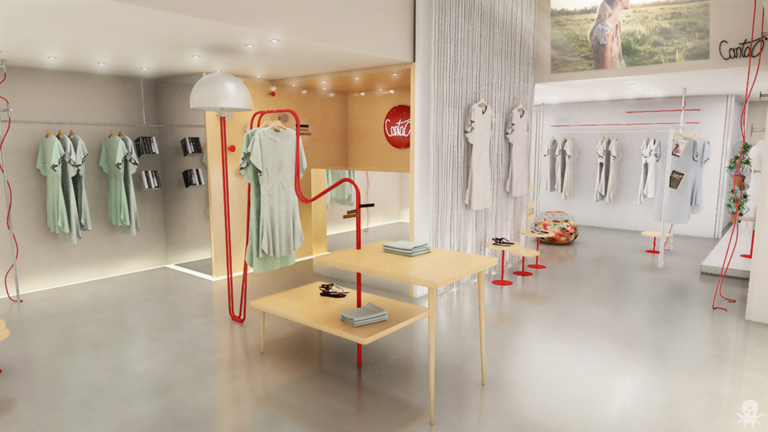Having control over what and how much we buy is a journey that brings benefits. With bulk buying, we can save money and reduce waste. This helps build a more sustainable future.
Key Takeaways
- Bulk buying offers a significant reduction in product prices.
- Buying only what is necessary prevents waste, especially for non-perishable items.
- This practice reduces environmental impact by decreasing packaging usage.
- Essential foods like beans, rice, oats, tomatoes, and nuts/seeds are great options for bulk buying.
- Bulk buying promotes economic, environmental, and quantity control benefits.
Understanding Bulk Buying
Economic and Sustainable Benefits
Bulk buying brings many benefits, both in economy and sustainability. Without packaging costs, prices are lower per kilogram or unit. This makes it cheaper than buying in smaller packages.
Bulk buying also helps better control the quantity you need. This reduces waste. Moreover, it is better for the environment as it uses less packaging and generates less waste.
| Benefits of Bulk Buying | Impact |
|---|---|
| Cost Reduction | The reduction in price per kilogram or liter positively impacts Cost of Goods Sold (COGS) and increases profit margins. |
| Waste Reduction | By buying only the necessary amount, losses are minimized, adjusting stock to actual demand. |
| Flexibility in Recipes | The availability of various bulk ingredients facilitates the creation of special dishes and adaptation to customer feedback. |
| Higher Quality | Bulk products tend to be fresher and less processed, raising the culinary standard. |
Adopting bulk buying can increase your business’s profits. It also promotes sustainability and reduction of environmental impact. This meets consumer demands for economic and ecological solutions.
Essential Foods to Buy in Bulk
Buying in bulk brings many benefits. Beans, lentils, brown rice, oats, canned tomatoes, and nuts and seeds are great choices. They are healthy and help save money. Additionally, they are sustainable.

These foods are rich in nutrients and can be used in many recipes. They have a long shelf life, which is good for those who want to save. Buying in bulk, you buy what you need, avoiding waste and saving money.
| Food | Average Bulk Price | Average Packaged Price | Average Savings |
|---|---|---|---|
| Legumes | €1.89 to €4.50 per kilogram | €1.90 to €2.98 per kilogram | €0.54 per kilogram |
| Nuts | €11.09 to €23 per kilogram | €15.80 to €19.80 per kilogram | €0.48 to €1.35 per kilogram |
| Cereals | €4.34 to €6.90 per kilogram | €3.98 to €4.58 per kilogram | €1.01 per kilogram |
Buying in bulk is good for your wallet and the planet. It helps reduce packaging use and food waste.
Bulk Buying: Save Money and Help the Planet
Buying in bulk is a great way to save money and take care of the environment. By buying what you need, you avoid waste and packaging costs. This helps reduce environmental impact, using fewer resources and generating less plastic waste.
Nowadays, the cost of living is rising, but more stores are selling bulk products. This helps reduce food waste and the use of disposable packaging. Thus, we contribute to sustainability.
DECO works to facilitate bulk buying, encouraging the use of personal containers for products like charcuterie and cheese. This helps reduce costs and environmental impact.
Want to live more sustainably? Contact DECO by phone, email, or social media. Your support can help create a more ecological and economic future.
“Bulk buying represents an advantageous alternative for both your wallet and the planet.”
| Benefits of Bulk Buying | Positive Impacts |
|---|---|
| Cost Reduction | Decreases food waste |
| Less Disposable Packaging | Lower resource use during production |
| Purchase Only the Necessary Amount | Reduction in plastic waste |
Practical Tips to Reduce Environmental Impact
Besides bulk buying, there are other tips to reduce environmental impact. It’s important to be mindful when shopping. Opting for appliances with the Procel Seal and using reusable bags helps. Avoiding disposable packaging is also crucial.
Planning and Conscious Choices
Prefer small local producers to support the circular economy and community. Recycling is essential, separating waste correctly. Planning and conscious choices are key to a more sustainable lifestyle. This includes saving water, electricity, and resources.
- Avoid disposable packaging and choose reusable options.
- Choose efficient appliances with the Procel Seal.
- Support small local producers to strengthen the circular economy.
- Practice effective recycling and waste separation.
- Plan and make conscious choices for a more sustainable lifestyle.
With these tips, you contribute to a more sustainable future and make a positive impact on the planet. Start making changes today to live more sustainably.








